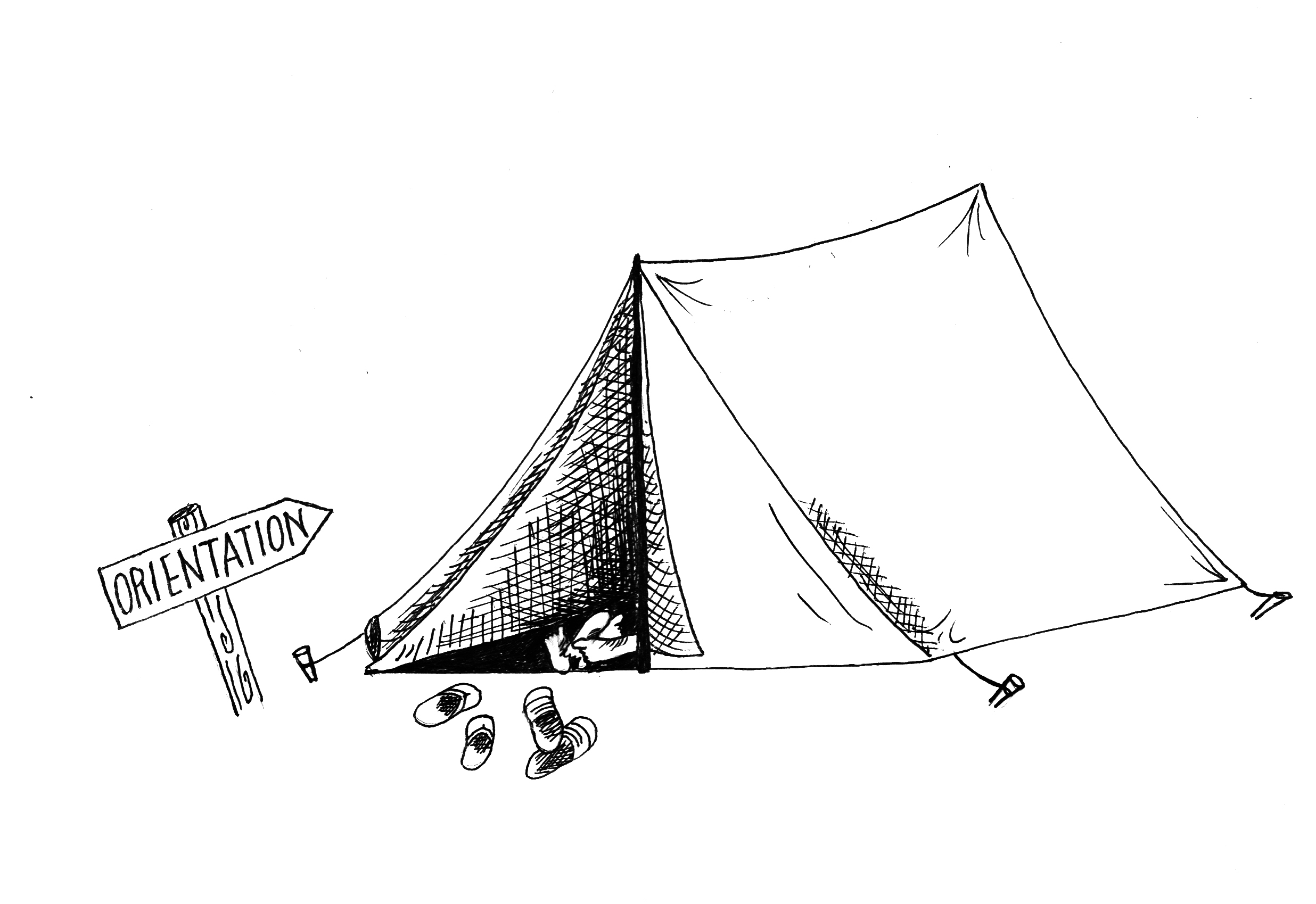Opinion: The responsibility of upperclassmen
March 1, 2019
 This
piece represents the opinion of the author
.
This
piece represents the opinion of the author
.
 Lily Anna Fullam
Lily Anna FullamIn high school, I used to think one’s age was indicative of one’s grade. For me and my friends, class year was an indicator of maturity, academic ability and social value. Your grade was a defining characteristic of your identity in high school, and as such, it was easy to tell by looks and personality what grade you were in.
It was refreshing to break free of high school grade constraints when I come to Bowdoin last year. For me, it was genuinely hard to determine what year someone was—looks or academic ability did not always equate to class year. There was a relative sense of equality between me and my upperclassman peers, which gave me the confidence to engage with them in meaningful ways. Yet, I wouldn’t consider under- and upperclassmen entirely equal. In fact, there are ways that class years have limited my friendships and relationships at Bowdoin—especially when it comes to hookups and dating.
For too many reasons to count, hook up and dating culture at Bowdoin is frustrating. In my experience, one of the most troublesome issues to navigate has been the power dynamics of hooking up with and dating upperclassmen. As an underclassman, my sexual relationships with upperclassmen, formal or informal, have been riddled with confusing problems. Time constraints, gender dynamics and degrees of experience are just some of the many issues that have placed undue pressure on sexual encounters.
One of the more aggressive problems has been when upperclassmen use their class year to assert power and dominance over me. I don’t think I’m alone when I say there is something exciting and attractive about hooking up with someone older. Admittedly, it’s weirdly socially validating and fun (especially as a first year).
The issue is not in being attracted to this type of partner or experience, but in how the partner chooses to use their grade to win affection and attention. In my experiences, many of my former partners have used their class year as a point of leverage to maintain the upper hand in relationships. Looking back, I feel manipulated and brainwashed to have been swept up in the attraction of an upperclassman partner. I wish I paid more attention to their character and how they treated me, rather than how I perceived them socially.
Yet, mulling over what I could have done better seems counterintuitive. I think my partners shouldn’t have used their class year to take advantage of my naiveté. There are countless times it has happened to my friends and others as well: Pre-O leaders hooking up with first years on trips, College House members hooking up with their buddies and co-ed sports members hooking up with new teammates. While most of these acts have been consensual, the grade difference affects how younger partners are able to make informed decisions about the encounters.
The grade gap also creates a power dynamic which leaves the relationship largely in the hands of the upperclassman. In my relationships, this power dynamic remained widely undiscussed and unacknowledged, resulting in my present-day feelings of regret and anger. Angry because, had we had an open conversation, our relationship might not have been so lopsided, confusing or detrimental to my self-respect.
Upperclassmen need to have more candid conversations with their underclass sexual partners. We can all pledge to be more aware of these dynamics, even as underclassmen, but the onus of responsibility falls on them. In these inter-grade encounters, upperclassmen need to prioritize equality with their partners, rather than the selfish feeling of superiority. They should do whatever is in their power to have safe discussions about the dynamics of these relationships. To many, this idea may seem to unrealistic; who would willingly have a pre- and post-coitus conversation about power dynamics? The fact is that it might be awkward, but the rewards completely outweigh the risks.
Open conversations have the potential to provide clarity, understanding and dialogue between two partners (a rare commodity in our hookup culture). It may seem annoying and outside the norms of our modern dating culture, but without these discussions, we leave space for terrible things to take place. Instances of inequality in sexual encounters, even as small as grade difference, can lead to larger issues of abuse, harassment and, in the most extreme cases, rape. As a community, we choose to see the power dynamics of upper/underclassman as isolated from other issues such as #MeToo and the Kavanaugh protests; yet, they are closely intertwined. Conversations at the micro level are important in breaking the cycle of abuse that too often leads to bigger crises of gender, domestic and sexual violence.

Comments
Before submitting a comment, please review our comment policy. Some key points from the policy: